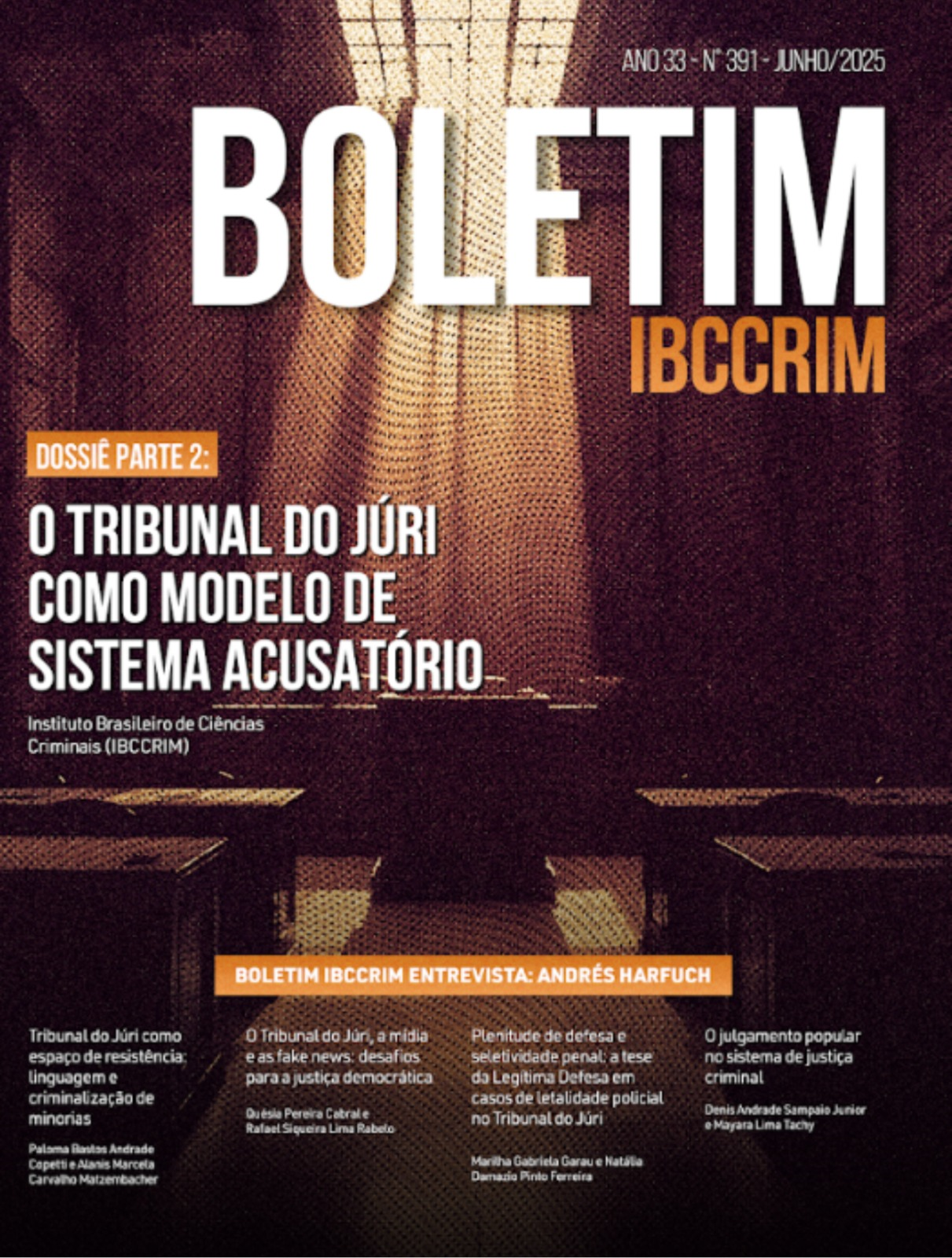Entrevista del Boletín IBCCRIM: Andrés Harfuch
Views: 16DOI:
https://doi.org/10.5281/zenodo.15224690Keywords:
Jury Trial, Criminal Procedure, Argentina, Human Rights, Democracy, Adversarial SystemAbstract
In this interview, Andrés Harfuch — Public Defender in Argentina and a leading expert on jury trials in Latin America — analyzes the Argentine experience with jury trials. He highlights the system's advantages, such as overcoming inquisitorial procedures, strengthening adversarial trials, increasing public legitimacy, promoting juror diversity, and expediting criminal processes. Harfuch compares the Argentine and Brazilian jury models and advocates for the jury as a democratic safeguard and a check on state punitive power.
Downloads
References
DE TOCQUEVILLE, Alexis. A democracia na América. São Paulo: Martins Fontes, 2005.
DEVLIN, Patrick. Trial by Jury. London: Stevens & Sons, 1956.
FOUCAULT, Michel. A verdade e as formas jurídicas. Rio de Janeiro: NAU Editora, 2003.
TRIBUNAL EUROPEU DE DIREITOS HUMANOS (TEDH). Taxquet v. Belgium, 2010.
CORTE INTERAMERICANA DE DIREITOS HUMANOS (CIDH). RVP v. Nicarágua, 2018.
SUPREME COURT OF THE UNITED STATES. Skilling v. United States, 561 U.S. 358, 2010.
SUPREME COURT OF THE UNITED STATES. Green v. United States, 355 U.S. 184, 1957.
ORGANIZAÇÃO DOS ESTADOS AMERICANOS. Convenção Americana de Direitos Humanos (Pacto de San José da Costa Rica). Disponível em: https://www.oas.org. Acesso em: 15 abr. 2025.
ALTO COMISSARIADO DAS NAÇÕES UNIDAS PARA OS DIREITOS HUMANOS. Pacto Internacional sobre Direitos Civis e Políticos (PIDCP). Disponível em: https://www.ohchr.org. Acesso em: 15 abr. 2025.
Downloads
Published
How to Cite
Issue
Section
License
Copyright (c) 2025 Prof. Dr. Rodrigo Faucz

This work is licensed under a Creative Commons Attribution-NonCommercial 4.0 International License.
Copyright of published articles belongs to the author, but with journal rights over the first publication and respecting the one-year exclusivity period. Authors may only use the same results in other publications by clearly indicating this journal as the medium of the original publication. If there is no such indication, it will be considered a situation of self-plagiarism.
Therefore, the reproduction, total or partial, of the articles published here is subject to the express mention of the origin of its publication in this journal, citing the volume and number of this publication. For legal purposes, the source of the original publication must be consigned, in addition to the DOI link for cross-reference (if any).

 Português (Brasil)
Português (Brasil)
 English
English
 Español (España)
Español (España)






